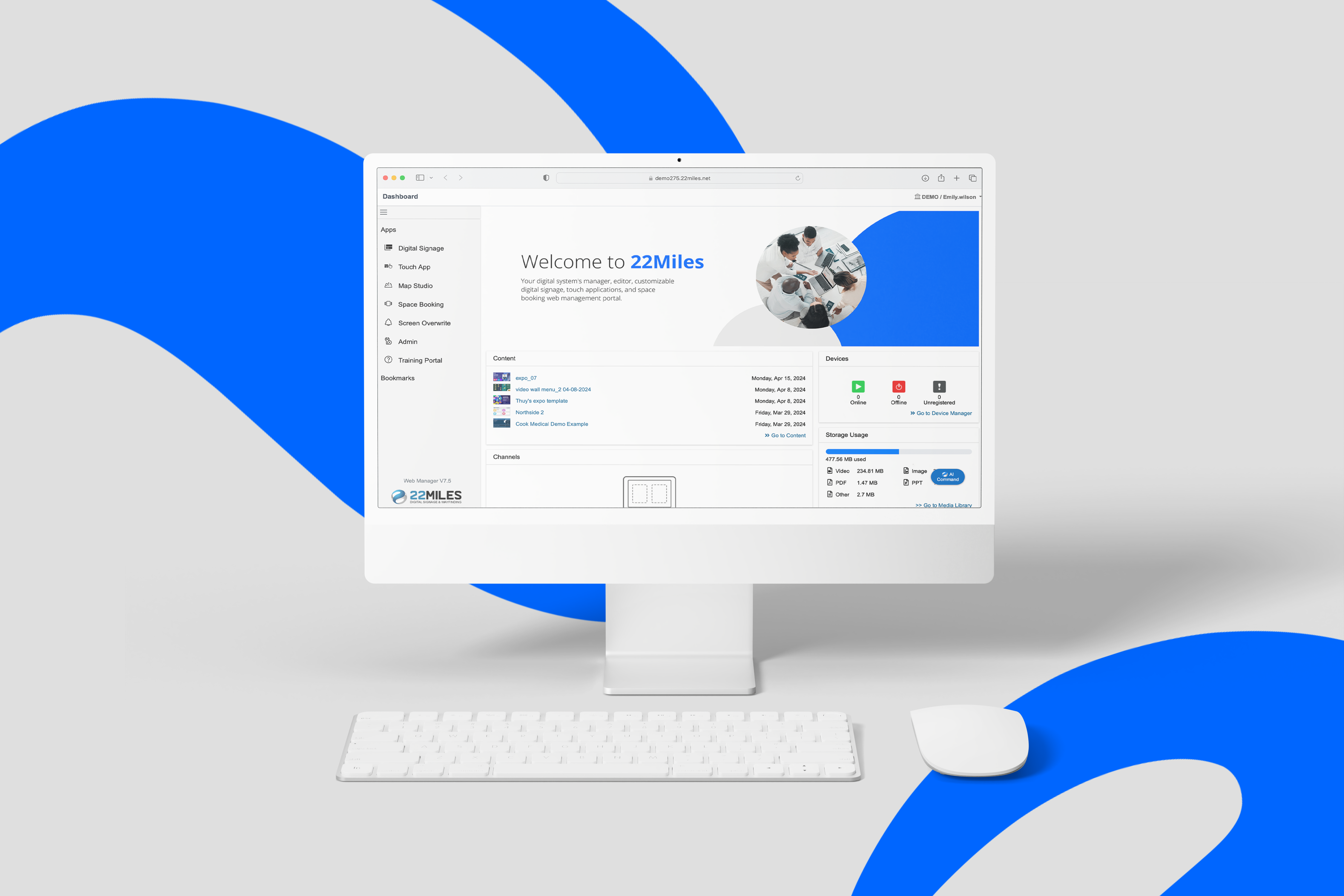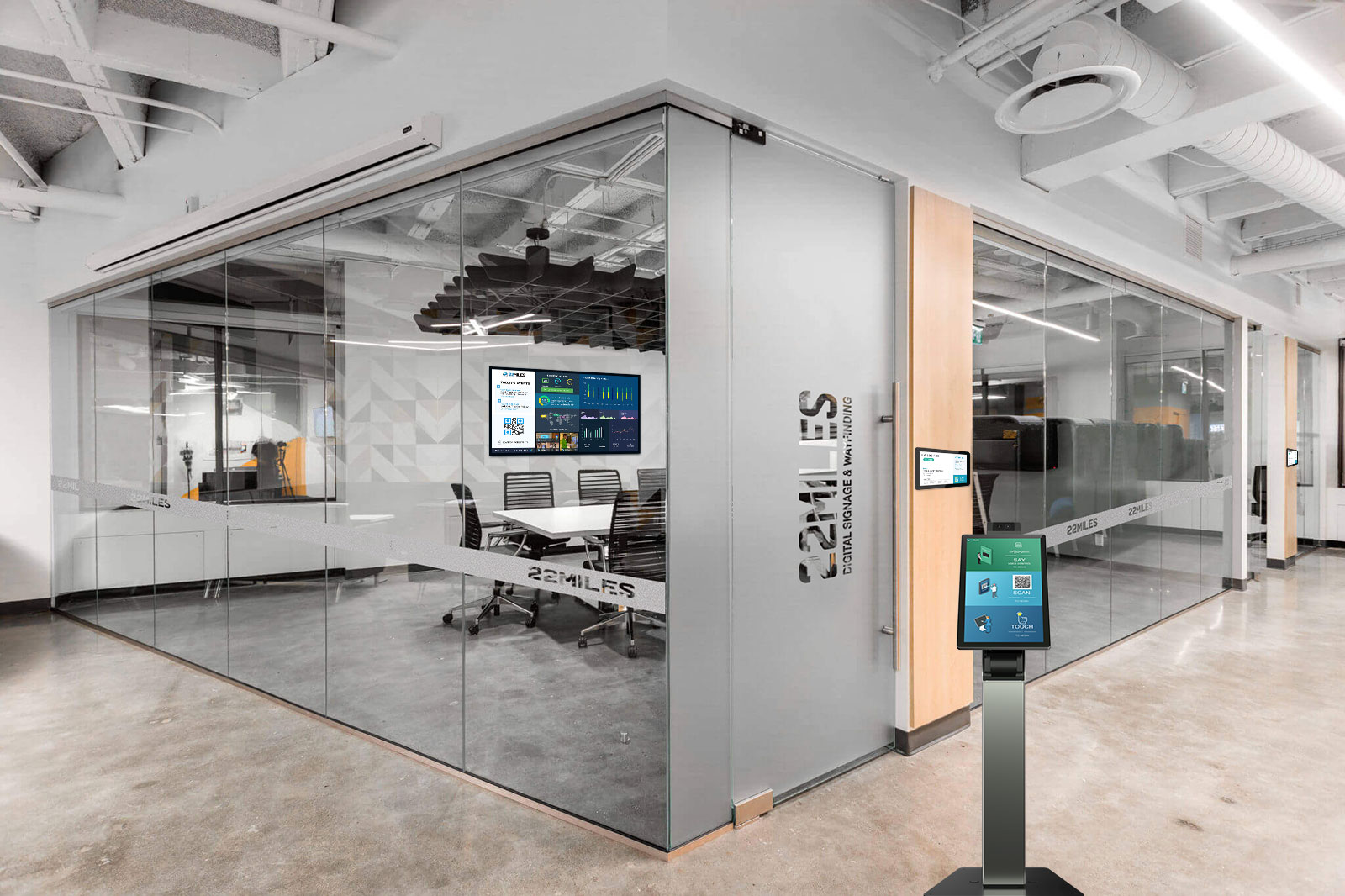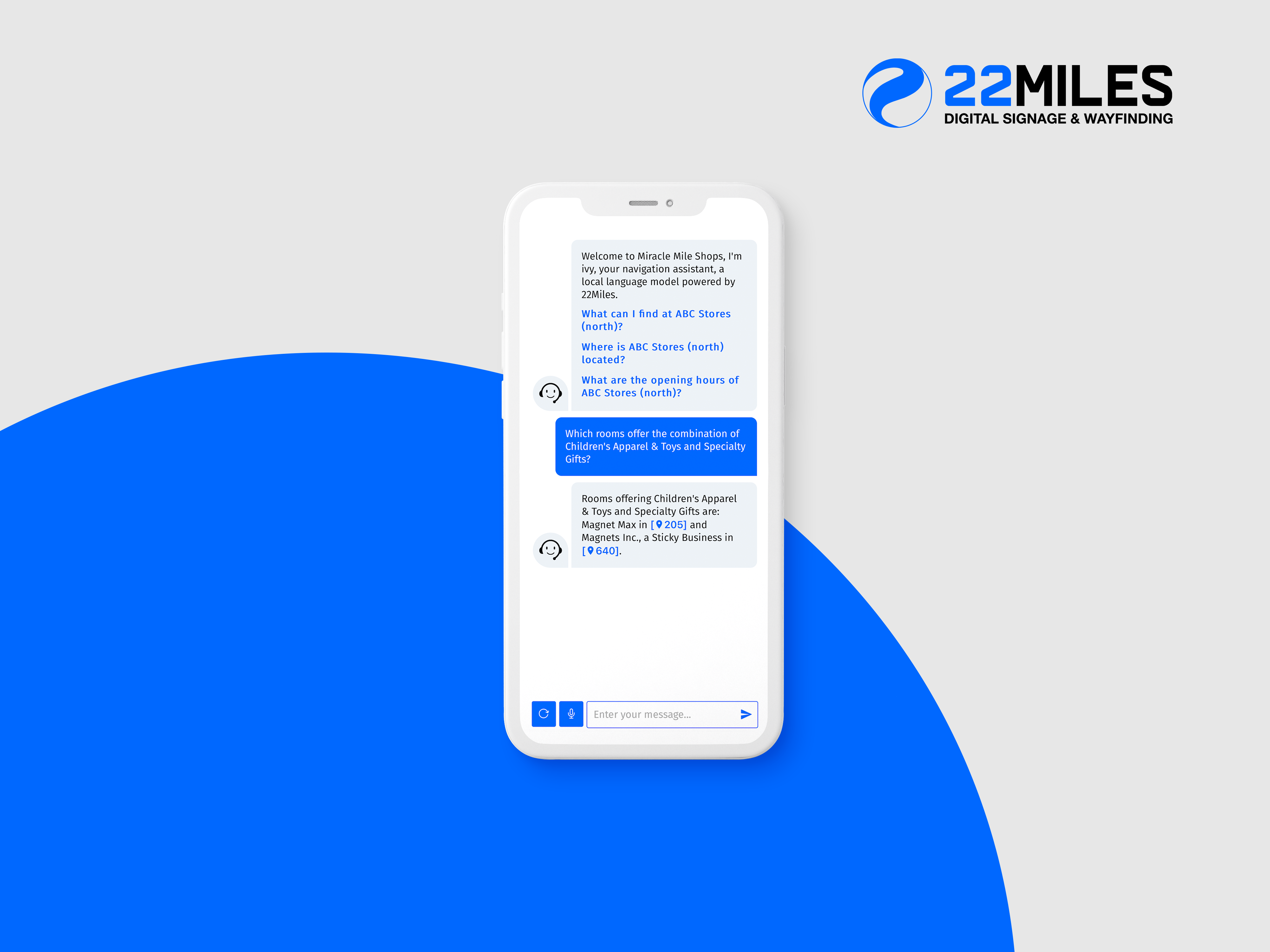We are entering a second iteration of 3D wayfinding thanks to both augmented reality and virtual reality technologies. 22Miles, based in Milpitas, California, has leveraged this trend with its recent introduction of an augmented reality wayfinding mobile app.
The app generated “overwhelming feedback” at the Digital Signage Expo in March, according to Tomer Mann, EVP of Global Sales and Operations.
“We believe that LED, projection and mobile are the ways the digital signage industry is going, and we were one of the solutions to set that trend with our AR plug-in for mobile app wayfinding,” Mann said.
Prior to 22Miles’ introduction of 3D wayfinding four years ago, wayfinding was a 2D perspective with limited benefit for orienting an individual to their place. In other words, the technology provided a map on a digital plane.
With the introduction of 3D wayfinding, Mann said the digital signage industry started understanding the significant role screen position plays with pathway orientation.
“It’s the true way to provide directions more accurately and it gives the individual a better sense of navigational orientation,” he said. “There is a big future for these AR capabilities.”
The technology for beacon or WiFi integration – which provides that extra level of real-time positioning – is still developing to achieve better accuracy and refresh rates.
Other trends within wayfinding applications
In addition to the 2D to 3D evolution, the concept of “touchscreen” has changed. It used to refer to just a large-format interactive screen, but it now also includes mobile and even touch video walls or gestured devices.
“If we combine all of those as touch-orientated wayfinding, I do believe this is the main solution of extra value. Wayfinding as normal signage will always be needed, digital just definitely enhances the experience in an interactive way,” Mann said.
Despite the progress that has been made with interactive technologies, some challenges remain. Mann said much work remains for a UI/UX approach, for example.
“If you design a touch solution that calls for action, and visually stimulates a user experience that can span all demographics, ‘educating consumers’ would not be a concern,” he said. “The world is all consumed with interactivity, it’s about that design and the triggers within that UI that make the difference and create simple two-to-three touch point usability response for the user.”
22Miles specifically measures success through its built-in analytics system. For example, the company has a retail client with 50 kiosks across three shopping malls and tracked its active statistics on button clicks, keyword searches, sessions, clicks and more.
“We found that from December of 2016 through December 2017, our 50 combined kiosks had 4 million button clicks. That is a huge measurement of use,” Mann said.
However, the team also noticed that the number one most clicked button was the “zoom in” button, which was not the intended goal. The client used a design firm to create the user interface, Mann said, and the focus was on the advertising piece, not the wayfinding piece.
“Because the map design seemed to be a secondary component, it lacked a bit of screen visibility for each store name,” he said. “So, basically, if someone wanted to understand this 2D map, they had to zoom in to see the store name and understand the pathway. The design firm with our stats realized this design flaw and now has the means to update their design within our software. That is a huge find and comes back to what I said previously about UI/UX is important for best call to action and usability.”
The future of wayfinding
To achieve optimum UI/UX, Mann believes AR wayfinding is the best path forward.
“This will change the experience from the virtual to the real and impact the digital world quickly,” he said. “I think the next level of digital is a big LED billboard with NFC or beacons pushing a total digital experience to your solution so you can interact and have an all-immersive solution on the go.”
Check out Mann’s brief tutorial about the wayfinding app here.



